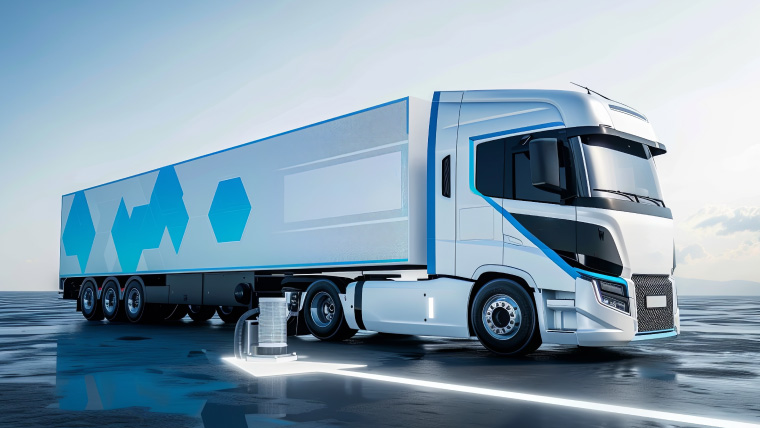
Toyota reaffirms its commitment to hydrogen as a key part of its zero-emission trucking strategy in North America with the announcement of its third-generation fuel cell (Gen 3 FC) system.
At the 2025 Advanced Clean Transportation (ACT) Expo, Toyota reaffirmed its commitment to hydrogen as a key part of its zero-emission trucking strategy in North America. The company’s focus is on Class 8 heavy-duty trucks, vehicles that contribute disproportionately to transportation-related emissions.
The centrepiece of Toyota’s announcement was its third-generation fuel cell (Gen 3 FC) system. According to the company, this new system delivers a 20% improvement in both efficiency and power compared to previous versions, along with a projected lifespan of over 600,000 miles. That puts it on par with diesel engines in terms of durability – a key benchmark for long-haul and port logistics sectors, where uptime and reliability are just as critical as sustainability.
Over the past four years, Toyota has been testing fuel cell trucks in real-world conditions, collaborating with partners such as Paccar, particularly in California. These pilot programs have not only demonstrated technical viability but also generated valuable operational data. That experience is clearly shaping Toyota’s current approach, helping it build credibility among fleets that remain sceptical of hydrogen’s real-world performance.
That said, significant challenges remain. Federal policy around hydrogen infrastructure and incentives remains unclear, potentially slowing market adoption in the near term. Toyota appears to be betting that by the time the Gen 3 FC system rolls out in 2027, the policy landscape – and possibly the economics – will be more favourable.
To support deployment, Toyota is working with Air Liquide and Iwatani to develop high-flow hydrogen fuelling stations, which are essential to achieving refuelling times competitive with diesel. Fast turnaround is a major pain point for battery electric trucks, particularly in freight and logistics, giving hydrogen a potential advantage. Still, hydrogen production costs remain a hurdle. Toyota’s work on methane-sourced and waste-derived hydrogen is a step in the right direction, but reaching cost parity with diesel remains a longer-term goal.
Ultimately, Toyota’s hydrogen push is as much about strategic positioning as it is about product. By investing early and visibly in hydrogen, the company aims to secure a leadership role in sustainable commercial transport, building a fuel cell technology ecosystem and brand narrative that resonate with both regulators and total cost of ownership (TCO) focused fleet operators. The company’s ongoing collaboration with Paccar is a good example of how Toyota is growing that ecosystem through strategic partnerships. While near-term challenges persist, Toyota’s ecosystem-building approach and technological advancements provide a robust foundation for long-term growth.



